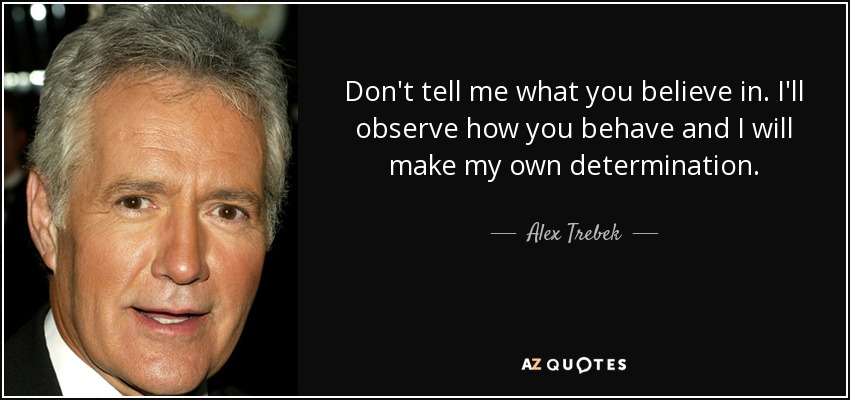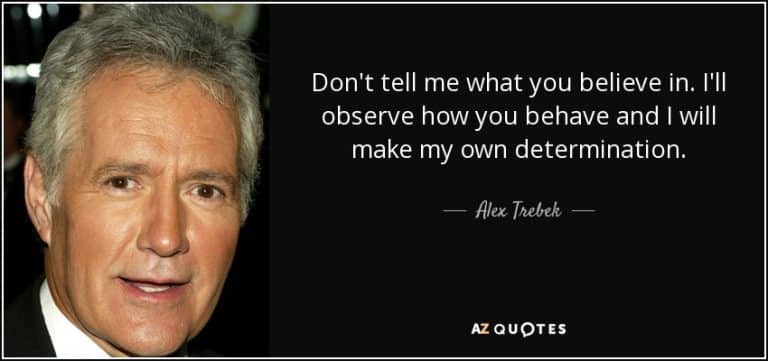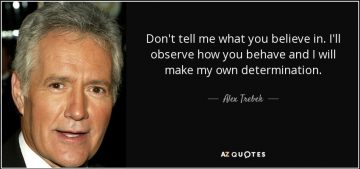 I’ve been worrying over this lesson for a while now, and actually started approaching it from a different angle. Then the sister missionaries dropped by our house this evening. The gist of their visit was, “You’ve both been full-time missionaries. What are you doing for missionary work now?”
I’ve been worrying over this lesson for a while now, and actually started approaching it from a different angle. Then the sister missionaries dropped by our house this evening. The gist of their visit was, “You’ve both been full-time missionaries. What are you doing for missionary work now?”
It’s a daunting question to answer, because, well, missionary work can be really uncomfortable. A few observations:
1. As in visiting teaching, attending a networking event, or living in L.A., friendliness is always suspect: do these people really like me, or do they want something from me?
2. Serving a mission was one of the hardest things I’ve ever done, even though I know it was also one of the best things I’ve ever done.
3. Although pretty much everyone who knows me knows that I’m Mormon, it’s both more complicated and more risky for me to preach the gospel vocally now than it was as a missionary.
4. There are aspects of missionary work, and the behavior of some missionaries, that bother and embarrass me.
I surprised myself by answering her question not from a defensive “We’ll let you know if we have friends who want to hear about the Church” position (my default–not really a good one) but instead from a positive, “fruits of the gospel” perspective:
“We try to live the gospel. We talk to our children a lot about being kind to everyone, and seeing the results of that is really gratifying. We invite our friends to baptisms and baby blessings–not because we want to get non-members in the door of the meetinghouse, but because these are important events in our lives and we want the people we love to be part of them. We try to be good friends, to be reliable people, to ease burdens. When a friend was talking to the missionaries a few years ago, we didn’t involve ourselves because she didn’t ask us to–we respected her right to learn about Church doctrine in a way that didn’t interfere with our friendship. She knew we were LDS; she was trying to decide whether she wanted to be as well.” And I told them about Exponent II, and that I’ve been writing for the blog. “I’m always surprised and pleased by the friends who see my link to the blog on Facebook and read what I’ve written. I think being ourselves and trying to be like Jesus is the best missionary work we can do.”
Guess what? They didn’t challenge us to pray about finding a family to share the gospel with. They didn’t ask us to hand out copies of the Book of Mormon (I can only imagine how ineffective that would be in our Stepford-esque New England town!). Instead, one of the sisters said, “One of my friends really struggled in the MTC with how to be a missionary and still be herself. I don’t think God called her on a mission to make her into a clone. I think he called her to serve a mission as herself.”
The title of the lesson is “To Reach Every Human Heart.” I’d like to amend that idealistic infinitive and add a direct-address command: “To Reach the Human Hearts You Need to Reach, Be Yourself.”
Now, on to the lesson.
Having received the fulness of the gospel, we desire to help others rejoice in the same blessings. Having received the fulness of the gospel, we desire to help others rejoice in the same blessings.
I think we frequently use the phrase “the fulness of the gospel” to mean “all the things Mormons believe that nobody else does.” And while there’s a restoration argument to be made here, I think we’re mostly wrong. The gospel is the good news. The gospel is the news that Jesus understands out suffering because he also suffered, and that he is willing to pay the spiritual cost of our sins if we just follow him and do the things that he would do.
“Fulness,” as I understand it, refers to richness, plenitude, abundance. It is our cup running over, our blessings being such that we cannot end counting them. It is gift and rejoicing over the gift. For me, the best gift is the idea that Jesus understands me when I am at my worst, is there when I need to rage and beat my fists against the wall, is there when I mess things up completely, and only asks that I try–in my bumbling, narrow-minded, foolish way–to act more like him. I’m not kidding. I know that the doctrine we talk about most when we think of missionary work is the doctrine of celestial marriage and families sealed together for eternity, but that’s just a piece of candy compared to the release from guilt and pain and anger that Jesus offers when he suggests we trade yokes with him. That’s the part I want to share with other people: You don’t have to feel awful forever about the things you’ve done that have caused other people pain. You get to try again, and Jesus just wants you to love him and love the people around you, so get working on the love part and stop worrying about the awful.
Lorenzo Snow said it in different words, but I think we’re talking about the same thing here:
“Go and make friends among the individuals by whom you are surrounded; or select one and try to start his feelings, his faith, his circumstances and his mind and try to enlighten them and if they are sinners, endeavor to save them from their sins, and bring them from their bondage in which they are placed to participate in the light and liberty which you participate in, for in this way you can do good through the information which the Lord has imparted to you.”
Light and liberty. God is good. Jesus is our savior. Hallelujah.
Missionaries are willing to make sacrifices to help others come to a knowledge of the truth.
Well, yeah. And while 19-year-old missionaries may be some of the worst offenders when it comes to Awkward Mormon Moments, it’s good to keep in mind that they’ve been raised by a subculture that expects them to spend two of their best spreading-their-wings years working for a cause whose goal is to make people happy. Instead of studying engineering or kissing boys or training for the Olympics, they’re thinking about other people’s problems. And even though they might not be exceptionally good at that yet, it says a lot for them that they’re willing to try it, and to learn it early, and to make that outward, compassionate mindset a part of their lives that won’t end when they get to take off the name tags.
President Snow’s words to the same effect:
There are things about a mission which are not altogether agreeable to our young Elders [and Sisters]. They realize that they have to sacrifice the pleasures of home, and they understand that they are going among people who will not always feel gratified at what they have to say to them; yet, on the other hand, they feel that they have the seeds of life in their possession, and that if they can find an honest man or woman, the Spirit of the Lord will operate upon their hearts and they will perchance receive this glorious message which they have to deliver. This affords them pleasure and satisfaction. Another thing, they see in this experience a chance for them to secure that which will be of great value to them in their future duties. It is a strange thing that among the thousands of letters which I have received from those who have been called to go upon missions—mostly young men—I do not think of but one case where a refusal was given. Why is this? It is because the spirit of love and of immortality, the Spirit of the Almighty, is upon these young Elders [and Sisters], and they have received manifestations which inspire them to do that which otherwise no inducement could prompt them to do.
(Note: I’ve included sisters not only because it speaks to the reality of missionary work today, but also because the first sister missionaries had been called a year before President Snow gave this address.)
Missionaries should never forget that they are ambassadors of heaven, bearers of good and glad tidings.
…and behave thusly. I’m talking to you, Elder who visited a shrine in western Argentina and took a picture of himself nursing at the bosom of a naked statue.
I’m sure if you ask around, you’ll find more stories than you want about missionaries who are culturally blind, arrogant, and rude. There’s a very good chance that they’re making the faux pas because they’re scared, intimidated, or clueless. Don’t be afraid to correct them (gently! kindly!) when they do things that make you cringe and weep for the future of the Church. And then invite them over for dinner so they know you love them and support them. They may or may not meet the legal drinking age in your corner of the world–remember that this is someone’s overgrown teenager who has left home for the first time.
Our hearts rejoice as we help others receive the fulness of the gospel.
Hallelujah and amen!
A few years ago my friend’s beloved (and enormous) dog died, and she had to explain it to her children, who were then three and one. She called me because she needed someone who would let her cry, and because my kids were about the same age, and because I’m a “believer.” I suggested she use a hand puppet to explain to her girls about death. It’s not my great idea–if you’ve spent any time in Primary classes or teaching missionary lessons, you know that a hand puppet is an easy visual aid: the puppet is a body, but without the spirit inside that makes it move, it’s just a body. Just because the spirit and the body can separate doesn’t mean that the spirit ceases to exist.
I think she’s brought that up once a year since then: how much she likes the metaphor, how calming it was to have something that resonated with her when she was telling her small children why their beloved bear of a dog wouldn’t be coming home.
Remember when I said that the fulness of the gospel means the good news, the cup running over? Those of us born into the Church forget that it’s even news because we’ve heard it since we were young enough to eat Cheerios in sacrament meeting, but part of that good news is that we (and our pets, too–see Doctrine & Covenants 77 if this sounds odd to you) are more than just mortal bodies. I didn’t need to name it as a Mormon belief or give scriptural proof or make a point that I was sharing the gospel with a friend–I just wanted to help someone I love feel peace. And bringing peace and comfort to people is most definitely being like Jesus.
Remember the observations I made above about missionary work? I’m going to make two more.
5. When you name it “missionary work,” it sounds like telemarketing. When you realize that the best way to share the gospel is by treating people the way Christ would treat them, it sounds a lot less threatening and a lot more authentic.
6. There is an ultimate irony here: the more you think about being a good missionary, the less effective you’ll be. Instead, the way to be an effective missionary is to work on yourself and your relationship with God, to improve the way you act toward other people, to help and listen and understand. Go figure.
No one speaks to missionaries in a vacuum. The golden contact who chases down those nice young ladies on their bikes and says, “I need you to teach me about your church,” isn’t doing so just because she was moved upon by the Holy Spirit when she saw the name tags. (Though that definitely happened.) It’s also that she’s had dozens of little contacts with the normal run-of-the-mill people in your ward who try to live what Jesus taught, and mostly fail, and sometimes get it right. She saw them struggling with trying to be good and took note of the way they fought the fight. Someday a full-time missionary might explain the doctrine and ask her if she’d like to be baptized, but in the meantime it’s my job to do what Jesus would do. Oh, and feed the missionaries, because they’re probably hungry and my kids will watch them and think, “I want to be like her someday.”
__________
The title of this lesson comes from an sermon President Snow gave to some recently-called missionaries, which was later printed in the Improvement Era because it was “full of helpful counsel and advice to every worker in the cause.” So keep in mind that he was speaking primarily to full-time missionaries, and only secondarily to the Church as a whole, when he said, “There is a way to reach every human heart, and it is your business to find the way to the hearts of those to whom you are called.” Less sales, more caring. Less pressure, more love.






8 Responses
This is beautiful, Libby. I LOVE your answer to the missionaries. I usually answer, “No. Sorry. Keep you posted.” Its an annoying question, and I think they are obligated to ask it, but I really loved your response. I need to work on making a more honest response as well.
And I love the sock puppet as a means to teach about the death of the family dog. It really is a lovely metaphor. Thank you for sharing it here, I think I needed that.
Thank you so much for such a thoughtful lesson, Libby. I feel the spirit and — separate to that– I just feel better having read it. Relieved, somehow. Your words are magic like that. Thank you.
I felt the spirit and better too, and, I also loved that sharing of the actually good(!) object lesson about death.
I love this so much, Libby, and your reminder that sometimes the very best ways to “share the gospel” might not look like sharing the gospel–at least not the way we have often been trained. Instead it looks like loving and caring and sometimes talking.
For me it looks like doing Mormon Studies at the doctorate level, and having lots and lots of conversations about the church, that might not lead others to the waters of baptism, but do lead them to more correct thinking about our beautiful, but messy church.
I do this enough that after a discussion of Mormonism’s view of Adam and Eve and Eden, a friend recently told me, “I need to read the Book of Mormon.” I offered to give him one, and he felt a little bit bad. I said, “No really, they’re free for me. I can give you one.” It was that easy, and I think much better than if I’d tried to shove it down his throat.
Thanks, Spunky and Rachel! I learned as a missionary that I’m best a tool in God’s hand when I’m being myself. But it was hard to explain that to mission hierarchy. I truly hope that having sister missionaries in leadership positions will change the way missions measure their success.
Libby, I want to be like you some day.
And, you’ve re-inspired me to have the missionaries to dinner. Last time I felt they were kinda high pressure with my son and it bugged me, but I should give them another chance.
I love everything about this lesson, but especially this: “When you name it “missionary work,” it sounds like telemarketing. When you realize that the best way to share the gospel is by treating people the way Christ would treat them, it sounds a lot less threatening and a lot more authentic.”
Amen, and amen!
I just recently accepted a call to be a relief Society instructor. I am so happy to have come across this website. Your thoughts are beautiful and will help me immensely. Thank you.
Libby, Thanks so much for giving us a more modern view of these lessons. I have only been a relief society teacher for a few months and find it to be a challenge most of the time, but when I read your
thoughts it is like a light comes on!!!